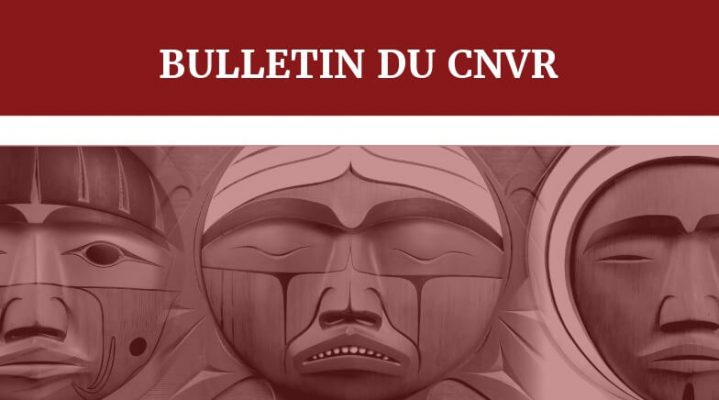Le Cercle de gouvernance
À propos du Cercle de gouvernance
Le Centre national pour la vérité et la réconciliation (CNVR) est guidé par un Cercle de gouvernance composé de six membres. Les membres du Cercle de gouvernance doivent :
- S’assurer que les Autochtones sont maîtres du matériel.
- Fournir des conseils sur les politiques, les activités, les cérémonies et les protocoles.
- Fournir des conseils sur les moyens à prendre pour enrichir les archives, le matériel et les ressources du Centre, ainsi que sur les partenaires potentiels.
- Fournir du soutien pour accéder aux archives, au matériel et aux ressources du Centre.
~ Cynthia Wesley-Esquimaux, présidente, Vérité et réconciliation, Université Lakehead
La gouvernance autochtone est cruciale pour renforcer la structure du processus de vérité et de réconciliation au Canada. Le CNVR veille à ce que le Canada n’oublie pas les voix des survivantes et des survivants ni leurs histoires étouffées par le système des pensionnats autochtones. Tous les membres du Cercle de gouvernance ont été façonnés et guidés par leurs cultures, leurs valeurs, leurs systèmes de croyances et les protocoles autochtones et sont déterminés à poursuivre le travail du CNVR.
En savoir plus sur le Cercle de gouvernance du CNVR.
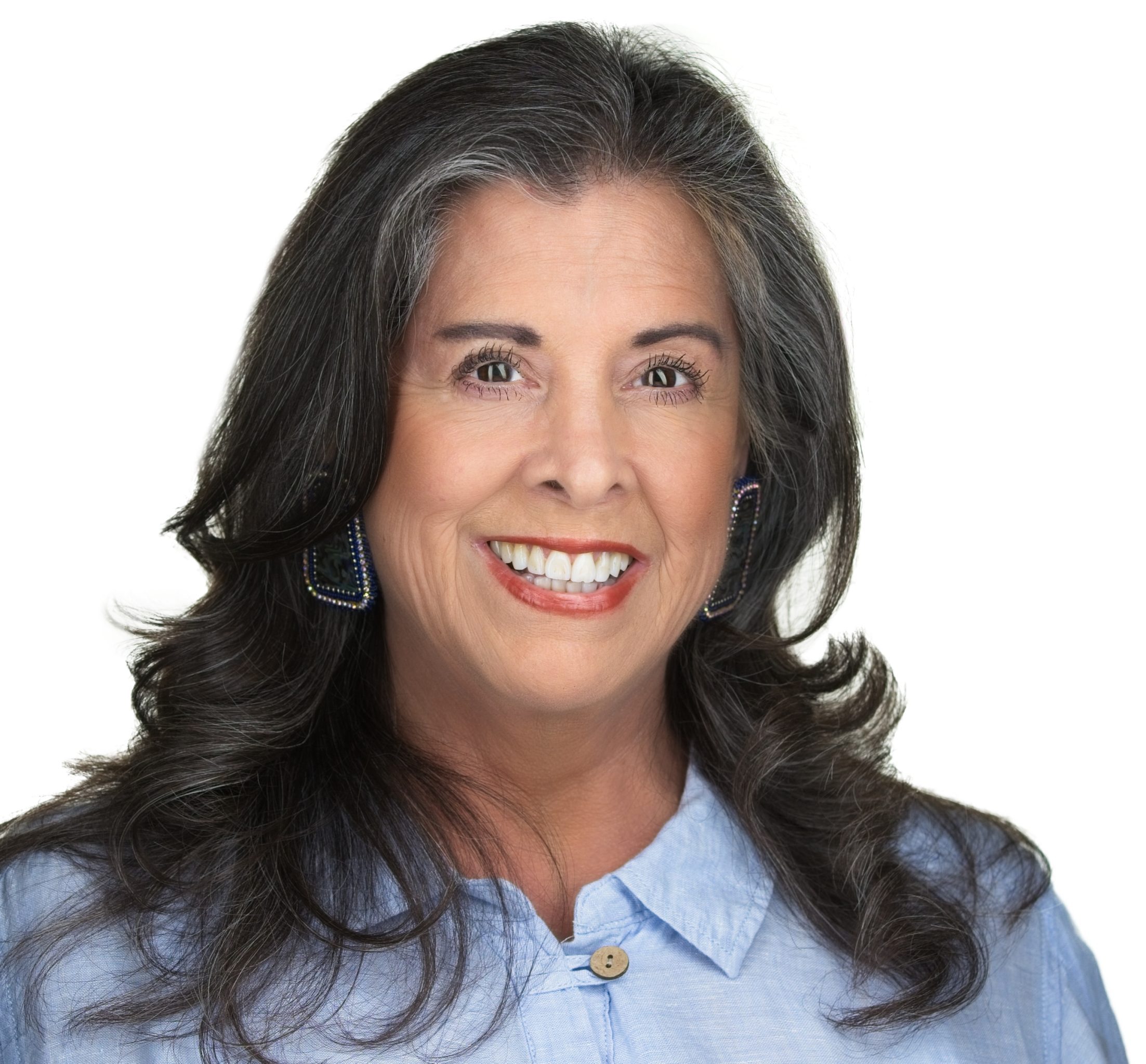
Mme Cynthia Wesley-Esquimaux, Ph. D.
présidente du Cercle de gouvernance
Mme Cynthia Wesley-Esquimaux, Ph. D., a occupé pendant trois ans les fonctions de vice-rectrice aux Initiatives autochtones à l’Université Lakehead. En septembre 2016, elle est devenue la première présidente autochtone pour la Vérité et la réconciliation au Canada et elle continue de tracer la voie vers la réconciliation au Canada.
Mme Cynthia Wesley-Esquimaux est membre du conseil d’administration de l’organisme sans but lucratif Teach for Canada, qui répond aux besoins des écoles autochtones dans le Nord de l’Ontario. Elle a été désignée « témoin honoraire » par la Commission de vérité et réconciliation du Canada et préside le Cercle de gouvernance du Centre national pour la vérité et la réconciliation de l’Université du Manitoba.
Elle est membre de la Première Nation des Chippewas de Georgina Island en Ontario, où elle réside, et consacre sa vie à créer des ponts pour favoriser la compréhension entre les peuples. Elle accorde un mérite incontestable au rapprochement entre les personnes de diverses cultures, de divers âges et de divers horizons pour engager un dialogue constructif et lancer des initiatives de recherche appliquée. Elle a profondément à cœur l’éducation publique et la mobilisation des jeunes de toutes les cultures et de tous les milieux.
Mme Cynthia Wesley-Esquimaux est cofondatrice d’un projet jeunesse mis en œuvre à l’Université de Toronto, à l’Université de la Saskatchewan et à l’Université Lakehead.

Andrew Carrier
Andrew Carrier est titulaire d’un baccalauréat ès arts et d’un diplôme en administration des affaires. Il est formateur professionnel agréé et intervenant en ressources humaines certifié.
Andrew Carrier a travaillé pendant 30 ans dans la fonction publique manitobaine et effectue actuellement son 5e mandat auprès de la Fédération des Métis du Manitoba.
De plus, M. Carrier a été nommé président du conseil d’administration de l’Indigenous Leadership Development Institute en 2010 et est membre fondateur du World Indigenous Business Forum. En 2016, le Ralliement national des Métis a nommé Andrew Carrier comme représentant métis au sein du Cercle de gouvernance du Centre national pour la vérité et la réconciliation. Andrew Carrier a survécu aux traumatismes subis durant son enfance alors qu’il fréquentait une école de jour catholique.
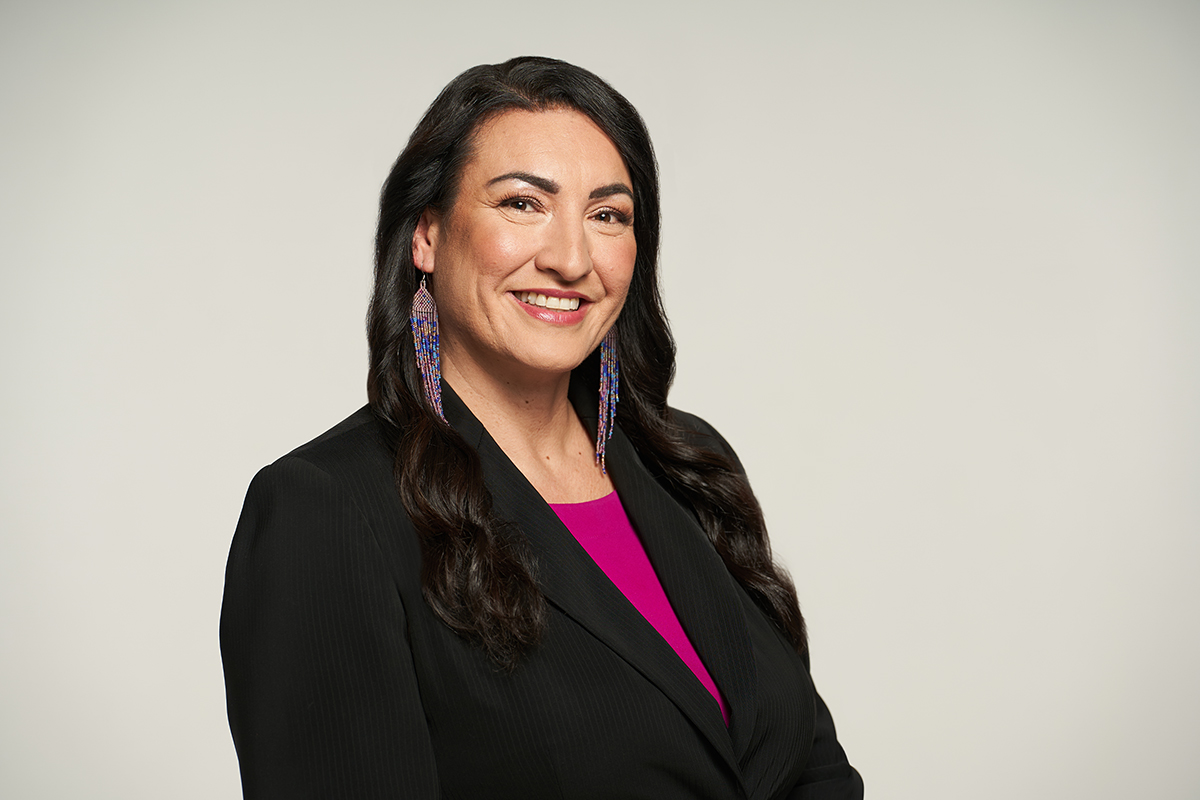
Mme Angie Bruce, Ph. D.
Mme Angie Bruce, Ph. D., vice-présidente (Autochtone), Université du Manitoba, est une fière Métisse de la rivière Rouge attachée à sa communauté natale de Saint-Laurent, au Manitoba. Mme Bruce a grandi dans la culture métisse et attribue aux figures maternelles fortes de sa famille le mérite de lui avoir inculqué un lien avec la terre, la communauté, la culture et la volonté. Elle est titulaire d’une maîtrise en administration des affaires de l’Asper School of Business de l’UM [MBA/09] et un doctorat à l’Université de Nipissing.
Leader influente et animée par un esprit de collaboration, Mme Bruce a acquis de l’expérience et œuvré avec succès auprès de membres des Premières Nations, des Inuits et des Métis, des communautés, des gouvernements et des organisations locales, régionales et fédérales, ainsi que dans les secteurs public, privé et sans but lucratif non autochtones. Avant de rejoindre l’Université du Manitoba le 1er février 2024, Mme Bruce a été sous-ministre adjointe du secteur Nòkwewashk à Ressources naturelles Canada – le premier ministère du gouvernement du Canada à avoir un secteur portant un nom autochtone décerné par des aîné(e)s.
Mme Bruce fera progresser les politiques, la recherche et la programmation de l’UM en faveur de la réconciliation et de l’autodétermination autochtone, et poursuivra l’héritage d’un leadership exemplaire pour le portefeuille de la vice-présidence (Autochtone).
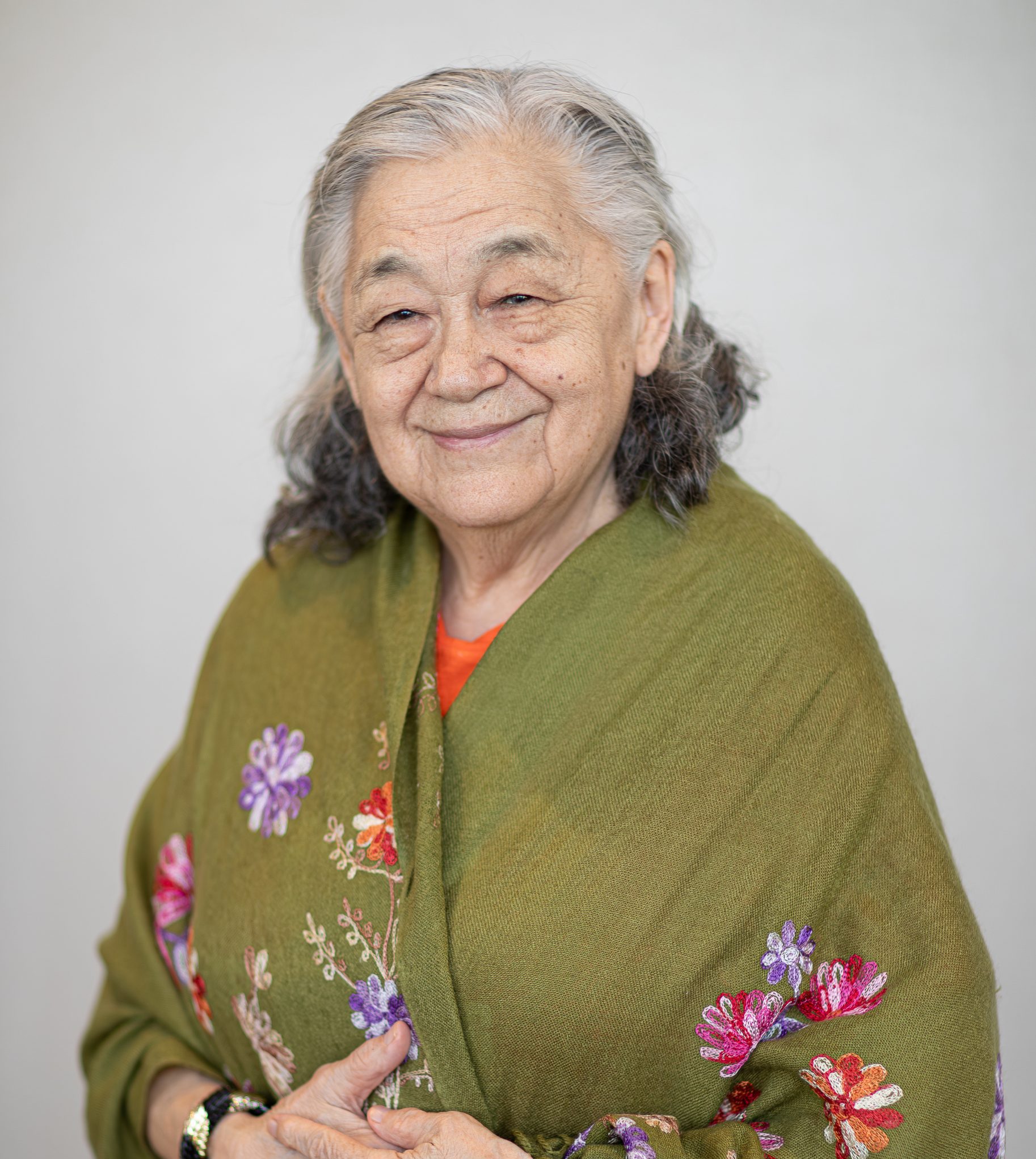
Leavina Brown
Leavina Brown est une survivante inuite de Rankin Inlet.
En 1978, Leavina Brown a reçu son certificat d’aide-enseignante des Territoires du Nord-Ouest. Elle a joué un rôle essentiel dans la mise sur pied de l’Eastern Arctic Teacher Education Program (EATEP), à Iqaluit. En 1980, elle est devenue la première présidente de l’Administration scolaire régionale de Keewatin. Après avoir occupé les fonctions d’agente d’information, de présidente de l’autorité locale du logement et de mairesse suppléante, Leavina Brown est devenue la première femme élue mairesse de Rankin Inlet.
Leavina Brown a aussi été députée de la circonscription Rankin Inlet South/Whale Cove. Le 16 février 2004, l’honorable Leavina Brown a été désignée par les députés pour faire partie du Conseil exécutif. Le 9 mars 2004, le premier ministre Paul Okalik nomme Mme Brown vice-première ministre.
Ayant consacré sa vie au développement et à la promotion du renforcement des capacités communautaires en matière de services sociaux et de santé, elle porte un regard positif sur la vie. Elle croit que la vie est précieuse et ne doit pas être gaspillée. Elle exprime clairement sa soif pour l’éducation, sa force de leadership et sa compassion pour les enjeux sociaux.
Leavina Brown est mariée à Ron Brown. Le couple a sept enfants et trois enfants adoptés selon les coutumes autochtones.
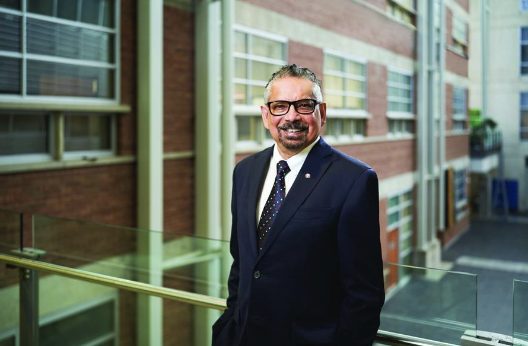
Dr B. Mario Pinto
B. Mario Pinto a rejoint l’équipe de direction de l’Université du Manitoba en tant que vice-président (recherche et international) en octobre 2022, après avoir été vice-chancelier adjoint à la recherche de l’Université Griffith et directeur du Gold Coast Health & Knowledge Precinct dans le Queensland, en Australie (2020-2022). Auparavant, il a été président du Conseil de recherches en sciences naturelles et en génie du Canada, président du Conseil mondial de la recherche, coprésident du Comité mixte Canada-Inde sur la science et la technologie, et vice-président de la recherche et titulaire de la chaire de chimie à l’Université Simon Fraser, au Canada.
Titulaire d’un diplôme de premier cycle et d’un doctorat de l’Université Queen’s (Ontario), M. Pinto a publié plus de 250 articles en biologie chimique, et nourrit une perspective simple mais ferme sur la recherche. « Ce qui compte, c’est la reconnaissance des effets de la
recherche, et la qualité de la publication et de l’innovation restent au cœur de la démarche », affirme-t-il. « Les chercheuses et chercheurs doivent prendre des risques et s’efforcer d’exercer une plus grande influence dans leurs domaines d’intérêt respectifs. »
M. Pinto est membre de la Société royale du Canada. Il a établi des partenariats entre plusieurs disciplines universitaires et avec de nombreux chefs de file industriels et commerciaux, dont la Bourse de Bombay et l’Indian Oil Corporation. Il a également partagé les meilleures pratiques de recherche avec la Fondation nationale des sciences du Sri Lanka. M. Pinto possède une vaste expérience de la commercialisation de la recherche, en tant que membre fondateur du Centre pour la recherche et le développement des médicaments, de Zone Start-Ups India, de VentureLabs® et de Venture Connection.
M. Pinto fait la promotion de la connectivité mondiale afin d’accroître le pouvoir de la ligne de mire en embrassant des perspectives diverses, et il est partisan de l’équité, de la diversité et de l’inclusion dans la recherche et l’innovation. Il a présidé le onzième Sommet sur le genre qui s’est concentré sur le thème du pluralisme pour contrer la pensée unique.
Depuis octobre 2022, M. Pinto occupe le poste de vice-président (recherche et international). Il prend appui sur les succès significatifs obtenus en tant que vice-chancelier adjoint à l’Université Griffith, et directeur du Health & Knowledge Precinct sur la Gold Coast, où il a travaillé en partenariat avec le Gold Coast University Hospital, le Gold Coast Private Hospital, le Gold Coast City Council et le gouvernement de l’État du Queensland pour attirer de nouveaux développeurs et industries dans le Precinct et créer un portail entre les chercheurs de l’université/hôpital et les partenaires commerciaux.
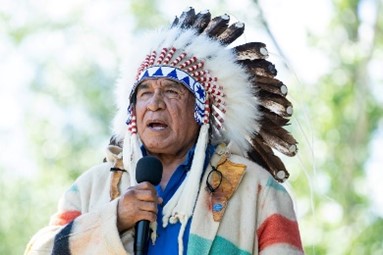
Keith Chiefmoon
Keith Chiefmoon est un professeur de danse du soleil de la Nation Ga’na (kainai) et travaille pour le programme des pensionnats autochtones et de la mobilisation communautaire au Kainai Wellness Center, relevant du ministère de la Santé de la Tribu des Blood. Il a décidé de prendre part à ce programme après avoir été enseignant dans deux réserves des Premières Nations, et directeur d’une école primaire, en plus d’avoir donné des cours sur les questions autochtones aux niveaux collégial et universitaire.
Il est parvenu à contrer la politique de Sir John A. MacDonald qui consistait à « tuer l’Indien dans l’enfant » : sa langue première est le pied-noir et l’anglais est sa langue seconde.
Le programme des pensionnats autochtones était en vigueur dans la réserve des Blood, et Keith Chiefmoon a été placé dans des pensionnats catholiques et anglicans. Il y est resté quelques années, et ses parents pensaient qu’un système d’écoles publiques serait meilleur, mais il a subi le racisme, la discrimination, la violence et la bigoterie dans les écoles de Cardston.
Tout ce racisme délétère l’a amené à sombrer dans l’alcoolisme à un très jeune âge, en plus de subir les conséquences d’une école communautaire basée sur la foi religieuse qui prônait que les Autochtones étaient la forme la plus basse de l’humanité sur la surface de la terre, et que la couleur de leur peau était une condamnation de ce qu’ils étaient.
En dépit de ces variables incontrôlables, il a terminé ses études et obtenu son diplôme de fin d’études secondaires et, refusant de se ranger à l’avis d’un conseiller des affaires indiennes, il a fait une demande d’inscription à l’université.
Keith Chiefmoon est sobre depuis quarante ans et a obtenu un baccalauréat en études autochtones, un baccalauréat en études sociales et en éducation autochtone, ainsi qu’une maîtrise en administration et supervision.
Le nom spirituel du CNVR, Bezhig miigwan, signifie « une plume ».
Bezhig miigwan nous invite à considérer chaque survivant qui se présente au CNVR comme une plume d’aigle, et à lui montrer le même respect et la même attention que s’il était une plume d’aigle. Ce nom signifie également que nous sommes tous ensemble – nous sommes unis et connectés, et il est vital de travailler ensemble pour parvenir à la réconciliation.

